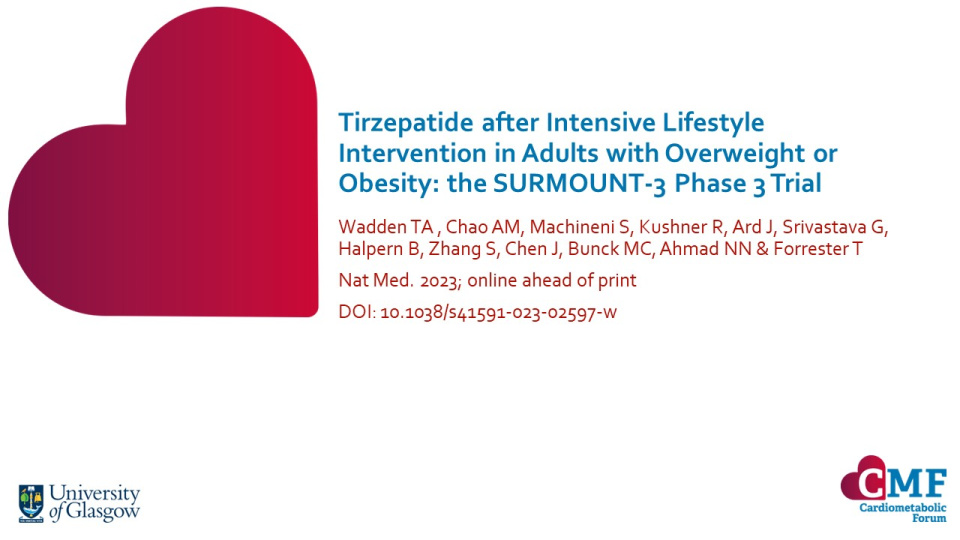Tirzepatide after Intensive Lifestyle Intervention in Adults with Overweight or Obesity: the SURMOUNT-3 Phase 3 Trial
Nat Med. 2023; online ahead of print DOI: 10.1038/s41591-023-02597-w
The use of antiobesity medications following intensive lifestyle intervention has been proposed as a strategy to induce additional weight reduction (which may be needed to achieve optimal control of obesity-related complications) or, at a minimum, to prevent weight regain. The effects of tirzepatide, the dual GIP and GLP-1RA, on weight reduction after successful intensive lifestyle intervention are unknown.
This double-blind trial randomised 579 adults with BMI ≥30 or ≥27 kg/m2 and at least one obesity-related complication (excluding diabetes), who achieved ≥5.0% weight reduction after a 12-week intensive lifestyle intervention, to tirzepatide maximum tolerated dose (10 or 15 mg) or placebo once weekly for 72 weeks. The coprimary endpoint of additional mean per cent weight change from randomisation to week 72 was met with changes of -18.4% with tirzepatide and +2.5% with placebo (estimated treatment difference -20.8 percentage points; 95% CI -23.2%, -18.5%; P<0.001). The other coprimary endpoint was met: 87.5% of patients with tirzepatide and 16.5% with placebo achieved additional weight reduction ≥5% (odds ratio 34.6%; 95% CI 19.2%, 62.6%; P<0.001). The most common adverse events with tirzepatide were gastrointestinal, with most being mild to moderate in severity.
Keywords:

